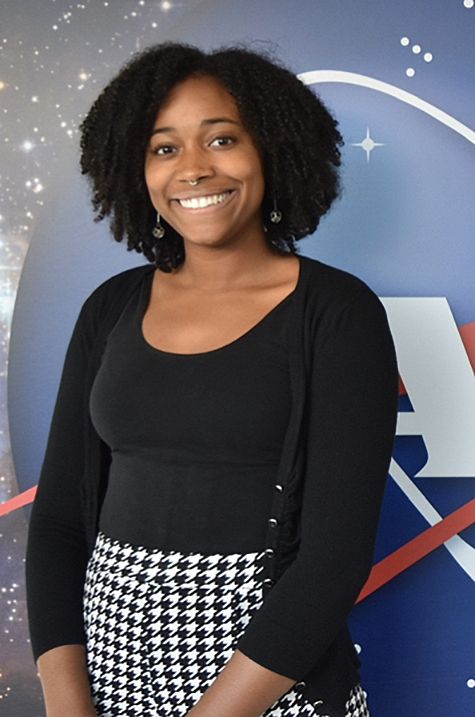Early Career Scientist Spotlight
Ms. Jordan Forman (she/her/hers)
Astrophysicist
Astroparticle Physics Laboratory (661)
What inspired you to pursue a career in Astrophysics?
I’ve had a lifelong fascination with the Universe, and all its fascinating and mysterious phenomena. As a child, my grandmother planted a lot of these seeds very early on. She took me to visit the Smithsonian’s National Air and Space Museum when I was about eight years old and I still remember it over a decade later. She also frequently took me to the library, and constantly brought me new books to read. I remember finding books in the library about the Solar System, black holes, stars, and planets, and I even wrote one of my first research papers in elementary school about supernovae. I’ve constantly found myself in awe every time I learn something new about the phenomena in our Universe, and my love for the field of astronomy and astrophysics has only deepened over the years. So, once I realized that I could make a career out of this, I jumped at the opportunity and decided to pursue a degree in Astrophysics, with the dream of working for NASA (and hopefully becoming an astronaut one day as well)!
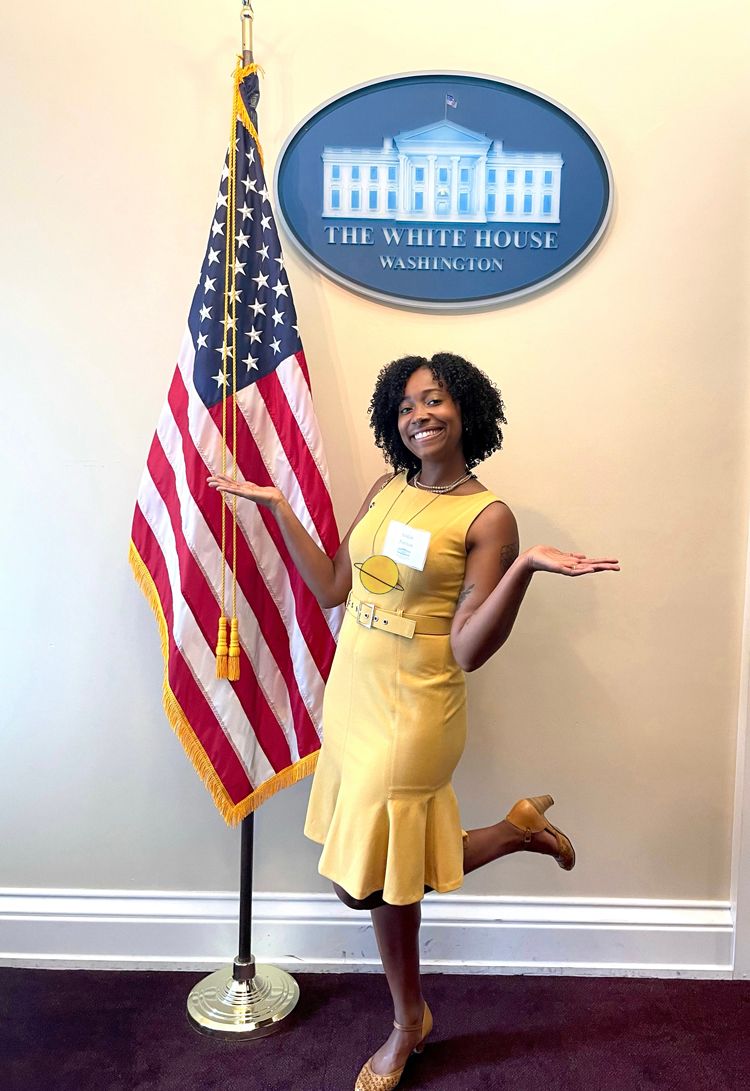
Credit: Amethyst Barnes
Tell us about the research projects you are currently working on.
I am currently working on a few different projects. I mainly focus on studying the high-energy emissions of Active Galactic Nuclei (AGN), which are supermassive black holes located at the centers of most galaxies that can produce large connicle beams (or jets) of plasma and radiation. I study the gamma-ray emissions of these black holes, using data from the Fermi Large Area Telescope (LAT), and I’m currently collaborating with a team of astronomers to coordinate a multi-wavelength analysis of a particular source that has exhibited some interesting behaviors over the years. I’m also finishing up a separate project testing a program that is designed to create theoretical models of a certain type of AGN called “blazars”. I’ve also done some additional volunteer work for the Fermi-LAT Collaboration to observe the gamma-ray sky and alert the Collaboration of any unusual activity from any sources in the telescope’s field of view.
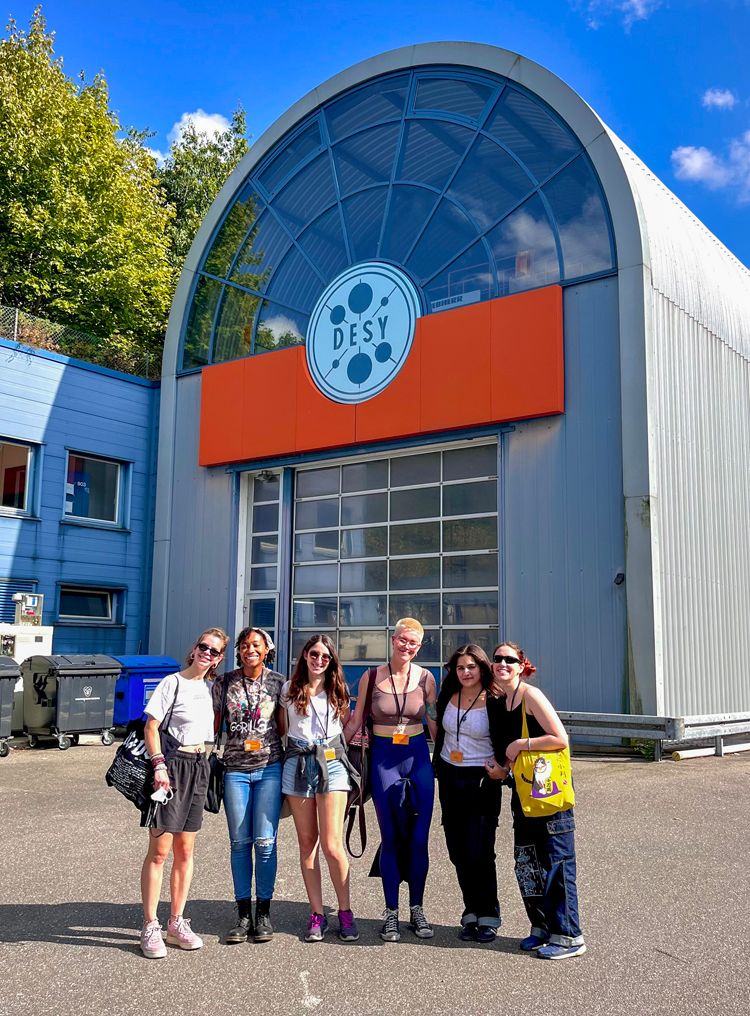
Credit: Jordan Forman
How did you end up working at NASA Goddard?
I started interning for NASA Goddard Space Flight Center during Summer 2021 after I introduced myself to the Deputy Director of the Astrophysics Division at a virtual career fair for the National Society of Black Physicists Conference in 2020. I had an impromptu interview with the Deputy Director who told me to apply to the NASA Internship program, and I started my first internship the following summer. I then completed two more consecutive internships with NASA Goddard during Fall 2021, and Spring 2022. I was then offered a fourth internship for Summer 2022 (which is the maximum allowed number of NASA internships one can have), but at the same time, I was also offered a position as a Summer Student to study astroparticle physics as a part of the DESY Summer Student Program in Germany. This was actually an opportunity that my NASA mentor had encouraged me to apply for, so I accepted the opportunity at DESY. Then once I completed my summer in Germany, I came back to the US, finished the last semester of my Bachelor’s degree in December, and then started my position as a Postbac Researcher onsite at NASA Goddard in March 2023.
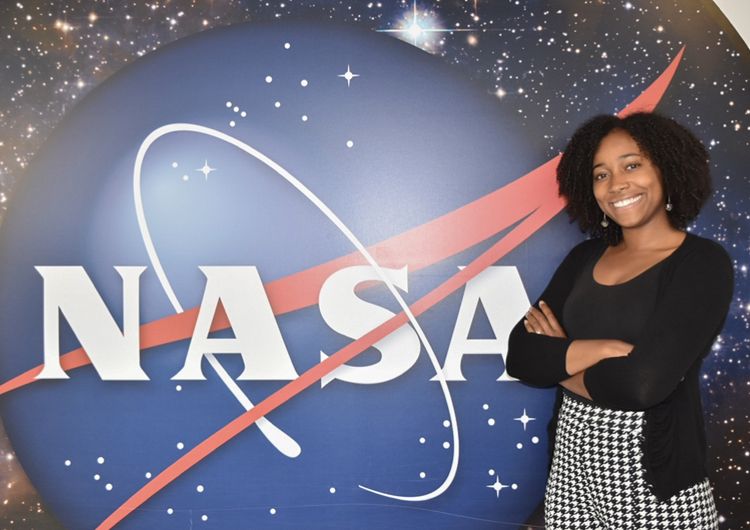
Credit: Emma Kleiner
What is one of your favorite moments in your career so far?
I’ve had a lot of really amazing moments already and I’m still so early into my career. But I’d have to say that one of my favorite moments so far was when I was invited by The National Space Council to The White House in D.C. to attend the first-ever in-person event for Black Space Week this past June. I got to talk with some of the most incredibly brilliant minds at this event, and I met a lot of my heroes as well. I’m an aspiring astronaut, and that day I got to spend the day talking with Dr. Sian Proctor (the first black woman to pilot a spacecraft), and I got to talk to Captain Victor Glover (who will be the first black man and person of color to fly around the moon and back for the NASA Artemis II mission). It was very surreal for me to be at that event. Definitely a huge highlight!
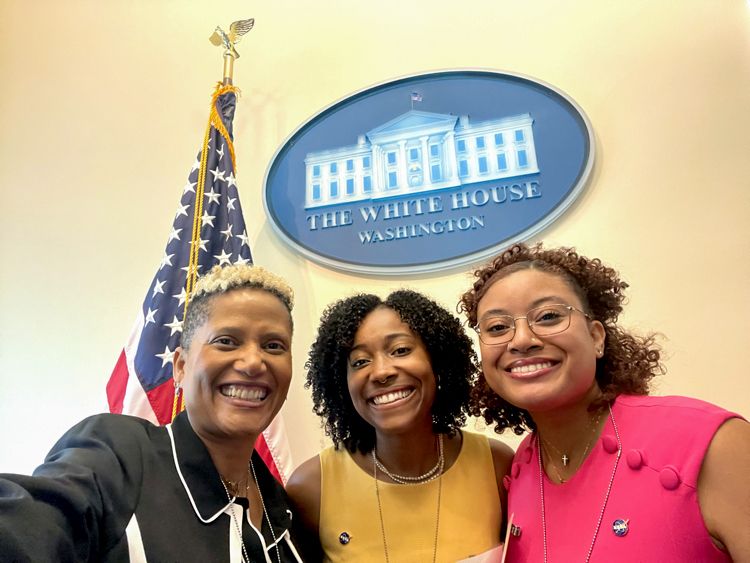
Credit: Dr. Sian Proctor
If you were to expand your current research focus, what new topics would you explore?
I am interested in expanding my research focus to study galactic evolution and its relation to Active Galactic Nuclei (AGN). These supermassive black holes reside in the centers of practically every large galaxy. To my knowledge, we know that they have the potential to impact galactic evolution over time, but we don’t have entirely concrete answers as to how. I’d love to delve more into the questions regarding the link between AGN and galactic evolution over cosmic time. I’m also interested in supernovae and supernova remnants as well, and their link to galactic evolution.
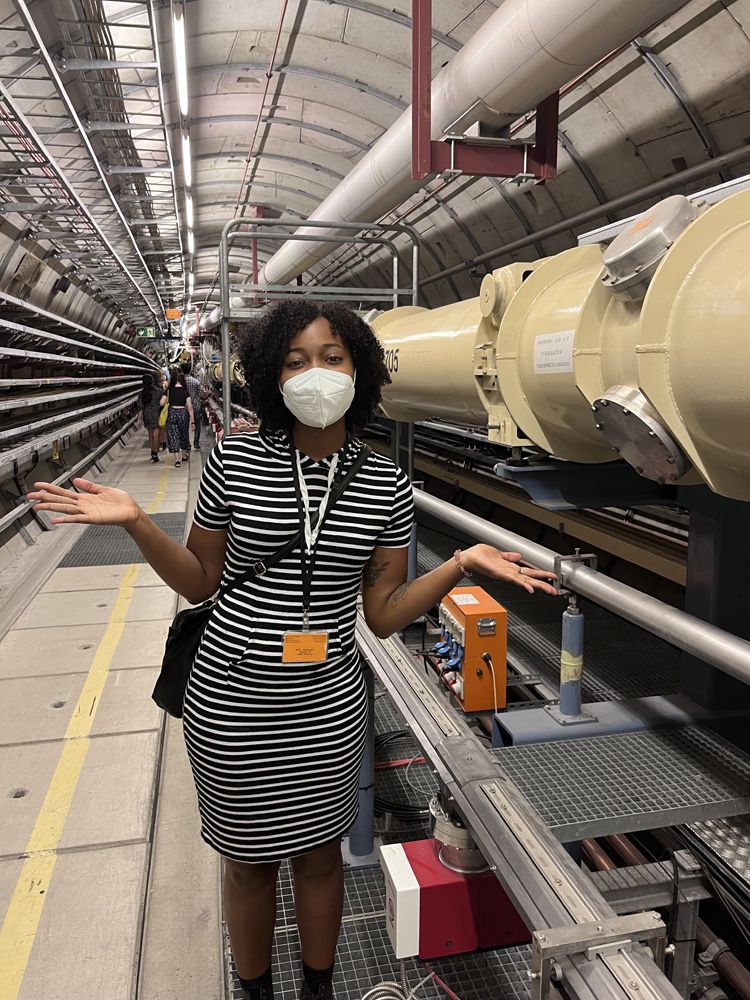
Credit: Karel Peetermans
What advice would you give your younger self?
If I could give my younger self advice, I would tell her not to worry about comparing herself to her peers and to just continue focusing on her own goals and aspirations. Particularly in undergrad, I struggled a lot with comparing myself to my peers and feeling inadequate, which caused me a lot of imposter syndrome. But over the years, I’ve learned that we are all on our own separate journeys and most paths are not linear. There’s no need to compare yourself to other people who you may deem to be farther ahead than you. It's important to focus on your own path and to focus your energy on taking the steps to pursue your own goals. Everyone’s path is different, and there are multiple ways to get to the same end goal. I would also tell her not to worry about what other people might think of her, and to just continue being her open and authentic self.
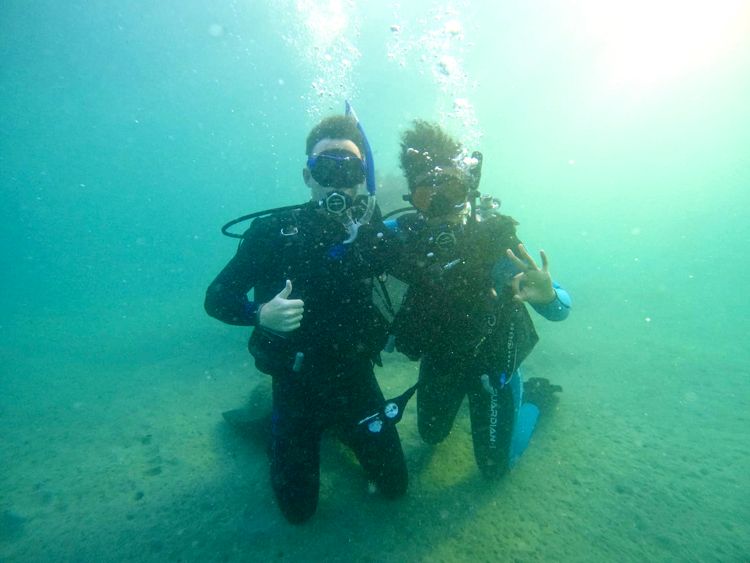
Credit: Andrew Webb-Buffington
Tell us about a unique or interesting component of your work-life balance.
I have a LOT of polarizing special interests and hobbies that I like to juggle in my free time. I love snorkeling and I have my scuba diving certification. I roller skate (I can skate backward, do spins, and do a few tricks!), play the piano and ukulele, sing, and crochet, and I swim in a mermaid tail sometimes too! I’m also a plant mom to about 20+ plants, I love coloring, and I’m learning German and practicing my Spanish. I love learning new skills, all of these hobbies and special interests keep me constantly learning new and interesting things!
Biography
Home Town:
Wilmington, Delaware
Undergraduate Degree:
B.S. Astronomy & Astrophysics, Florida Institute of Technology, Melbourne, Florida
